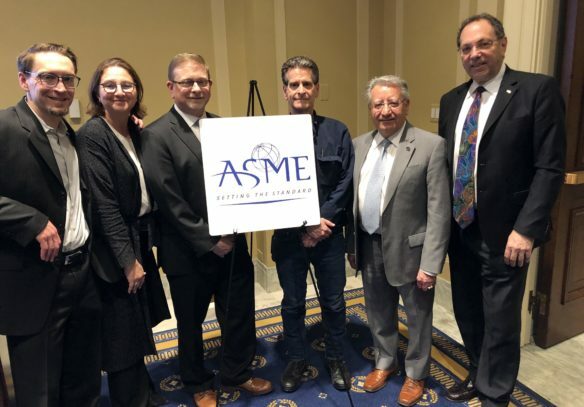The Importance of Standards and Manufacturing Needs – Recent Meetings
On Monday, March 18, the Standards Coordinating Body convened for a workshop on standards. The group discussed how standards are critical for the transfer of novel technologies from academia to clinical use. The FDA’s Judy Arcidiacono, one of the keynote speakers, discussed how standards are imperative to building the foundation of regenerative medicine innovation.
The workshop’s objective was to increase participation in the standards development process, increase awareness of the reference material development process, and promote the use of standards in product development and regulatory approval.
She went on to mark the difference between regulations and standards. While regulations are mandatory and promulgated by regulatory agencies (FDA) to implement and/or enforce legislation enacted by Congress, standards, in contrast, are voluntary and frequently developed outside of government. This set the tone for the rest of the two-day meeting and the discussions surrounding the generation of standards in the industry. Amongst other things, they create a benchmark of how manufacturing might meet regulatory requirements.
Arcidiacono spoke about how the evolution of voluntary consensus standards (VCSN) clearly speaks about balance and openness of process and consensus needed to develop these important documents.
It is important to differentiate between standards related to process and to performance, which call for more function and operations requirements than physical standards or reference materials.
In a nutshell, why do we need standards in the RM industry?
- They help facilitate consistent and predictable product manufacturing and assessment, field testing, clinical trial data exchange, and product labeling.
- They can streamline premarket review and facilitate market entry for safe and effective products, including products from emerging technologies under FDA oversight.
On a panel with representatives from Cleveland Clinic, LifeNetHealth, and LCG, Akron Biotech CEO Claudia Zylberberg discussed the factors that contribute to the successful adoption of a standard. “Standards contribute to the growth of the sector, creating consistency and harmonization among stakeholders generating consensus in terms of compliance,” she said.
Dr. Zylberberg also touched upon the biggest hurdles faced when implementing standards—and how to mitigate them. “Ancillary materials are a great example of an exercise with several international participants looking for consensus in the language and understanding of key elements regarding the compliance of ancillary materials among sponsors and suppliers.”
She went on to discuss ways to expedite the development and adoption of a standard when a new method to address a pressing industry need is recognized. Training is important to advance adoption, as well as the analysis of the long-term impact in the cost of implementing a standard. The savings in adopting a consistent process and the thought of not only standard, but reference materials, creates a safety net for future growth and development of the industry.
The SCB standards meeting comprised two full days filled of discussions with key industry members and regulators. For more information about this and other meetings, please visit www.standardscoordinatingbody.org.

On April 10, the American Society of Mechanical Engineers (ASME) convened in Washington, D.C., to host a congressional briefing that highlighted the challenges and opportunities facing the tissue-engineered medical products industry. These challenges arise mainly from the need to scale-up production as products move from the research phase to clinical trials and then on to commercial availability. This meeting provided insights into the ways that growing manufacturing capacities will positively impact durable cures and the broader range of regenerative medicine therapies. Dr. Zylberberg was invited to speak on how she is approaching the associated challenges and to give a presentation on Akron’s ancillary materials position.
On April 15, Dr. Zylberberg will attend the University of Minnesota’s 2019 Manufacturing Needs workshop as a keynote speaker. This workshop will outline the breakthroughs in cell technologies, material science, and biofabrication methods – particularly 3D bioprinting. She will speak about Akron’s process for qualifying raw materials/reagents as well as Akron’s approach to the development of a certificate of analysis for its cGMP products. This meeting will consist of talks, discussions, and brainstorming sessions covering a range of topics, from raw materials to supply chain challenges. Be sure to stay tuned for updates!